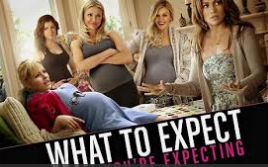I grew up with strong female role models on TV. With shows like Ally McBeal, Melrose Place, Dynasty, Dallas and Murphy Brown and trail blazers like Mary Tyler Moore and Lucille Ball in the sixties and seventies. Not to mention Buffy, Wonder Woman and Xena Warrior Princess. Women who could kick some serious butt. (No wonder I turned out like I did!)
I wanted to be Amanda Woodward, the kickass power woman running her own advertising agency in Melrose Place. Or Alexis Carrington for those shoulder pads alone. How much influence did these power women of the eighties and nineties have on the roles of modern women?
The eighties were a time of money, decadence, stature, egos, big shoulder pads and even bigger hair. It was a time when women were declaring their independence and daring to defy the gender roles defined by society. The eighties were termed the ‘me’ generation, as this generation seemed only concerned about themselves and making money.
Entertainment in the eighties showed the interest society placed in financial success. TV characters lived in fancy homes, wore designer clothes and drove expensive cars. Movies like Wall Street and The Secret of My Success romanticised this type of life. The eighties became about indulgence – money, sex and drugs – and this influenced pop culture and the choices we made. The eighties defied previous rules and perhaps laid the foundation for my thinking here and now.
Yet, despite the eighties power narrative, now that these women are in their thirties and forties, the pressure to procreate is still strong. While movies like What to Expect When You’re Expecting and Baby Mama, Baby Boom and Knocked Up show women questioning their need or want for children, these movies all share the belief that, no matter how you feel now, you will just fall in love with being a mum once the baby is born. This is simply not true for all women. Hollywood keeps perpetuating the ‘being a mum is the best job a woman can have’ fantasy.
Motherhood may be a fantasy, but it’s a fantasy that not every woman shares. Certainly not this woman. I am with Samantha Jones from Sex and the City on this one – baby not on board!
And because the media perpetuates this fantasy, women who don’t want to have children are considered to be abnormal, and their other interests are seen as dangerous, melancholy or degrading.
In fact, in the trailer for the documentary My So-Called Selfish Life, which discusses the growing number of women who choose not to have kids, one of the opening shots shows a series of US TV talk shows discussing the subject, with the mainly male panels agreeing that women are selfish. One male journalist even said, ‘Have you ever seen anything more selfish, decadent and stupid?’
Similarly, in a 2013 article, journalist Kate Spicer wrote, ‘Any woman who says she’s happy to be childless is a liar or a fool.’
When Holly Brockwell, editor of the UK women’s technology and lifestyle site Gadgette, wrote for the BBC about her decision to get sterilized and not have children, reaction started pouring in just a half hour after the article posted. ‘The emails alone have got to be in the hundreds,’ Brockwell
Many were positive, but the negative ones more than made up for the kudos. ‘The nasty ones are, “You’re the worst person in the world, I hate you,” and they stick with you,’ Brockwell said. Some, like the man who found her phone number and insisted he could talk her into wanting kids, were downright creepy. It got so bad that she deactivated her Twitter account.
This is the sort of behaviour and judgement that needs to stop. Why is it that a choice someone else makes for their own life can make a total stranger so angry? How does it impact them and why do they object so harshly?










Leave a Reply
Want to join the discussion?Feel free to contribute!